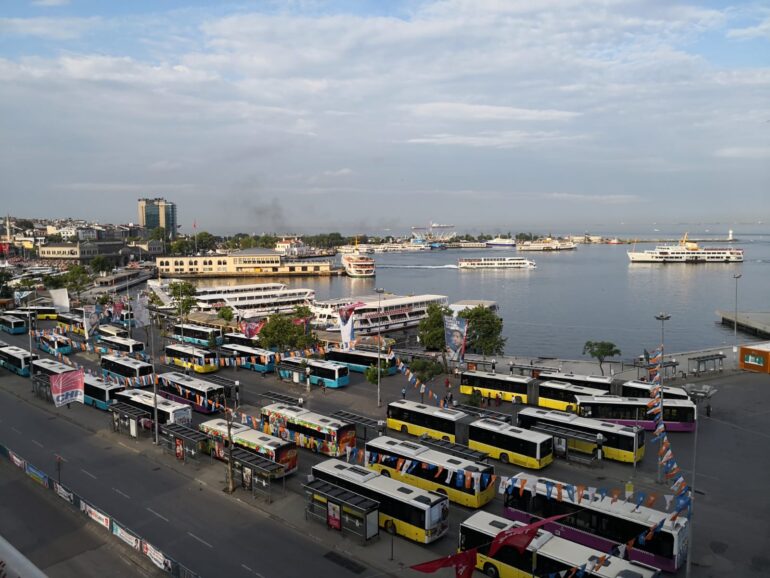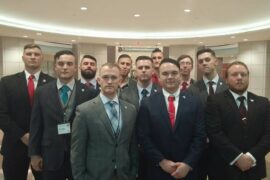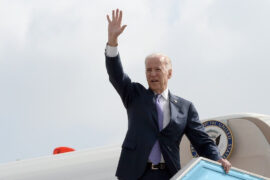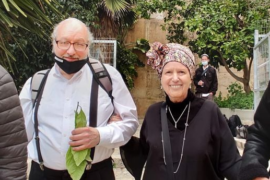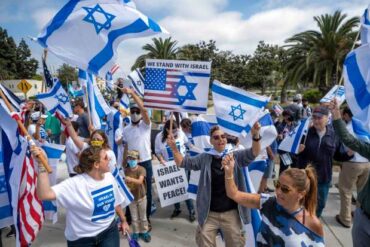All across the Middle East, the people are awakening to a new reality. Some are in denial, and the directions chosen are not in tandem, but the winds of change are there and felt. The ensuing chaos is only a symptom. What has happened is not what will be.
I frequently travel to Turkey, where I have been openly accepted as an Israeli. It is not as if Turks of all stripes like Israel’s treatment of the Palestinians. But at the end of the day, they see me as a neighbor, as inhabiting the same Mediterranean space. They see Israeli Jews as part of the Middle Eastern mosaic.
They do not seek to send me back to Europe or to the US.
Indeed, as inheritors of the Ottoman Empire, the Turks acknowledge a multitude of people and races from across the region as legitimate. They can accept differences when exhibited by people from other countries (not necessarily by minorities within Turkey itself), in spite of the totalitarian way in which the Turkish state came into existence. Perhaps it’s a realism, perhaps it’s due to the Ottoman spirit, perhaps it’s due to a current economic plight. But either way, as an Israeli, I’ve never had trouble in Turkey.
Coming as an American, however, would be a different story. The Turks are deeply suspicious of US passport holders after the July 15, 2016 attempted coup, in which factions of the Turkish military, probably supported by NATO higher-ups and the CIA, attempted to remove President Recep Tayyip Erdoğan from power. The coup failed and the Turks discovered that even though they are divided in various political issues, they will not allow the US to dictate Turkey’s political affairs.
In the recent June 24 elections, President Erdoğan’s AK (Justice and Development) party emerged triumphant, albeit not with a total majority. Why did the Turks vote once again for Erdoğan?
The reasons are complex, as are Turkey and its internal political issues. But by and large, it seems to me that the explanation is quite simple.
Erdoğan won again because after decades of neglect and contempt by the Kemalist ruling minority towards the rural majority, the Turkish peasants had enough of a secular Europeanism totally alien to their reality being forcibly imposed upon them by subsequent military dictatorships. Instead, they’ve decided to finally embrace their traditions and Islamic roots. Erdoğan is accepted as one of them. Despite his corruption and unpopular policies, he has restored their national honor and self-respect. Moreover, he has restored an element of their identity repressed since the founding of the secular republic by Mustafa Kemal Ataturk. That of a traditional, communal, and theistic society. Under Ataturk and since, it should be remembered, religious display in the public life (such as the wearing of the hijab in governmental positions) had been repressed. But now with Erdoğan this is changing, allowing Islam to become part of the public arena and putting an end to the European-inspired repression separating between the private and the public, the religious and the secular.
Erdoğan’s restoration of tradition in Turkey makes sense when understood as a reaction to decades of imposed westernization. And while he has been encouraging the growth of Islamic schools, Istanbul remains a city full of men and women, both secular and religious, co-existing side by side with mutual respect.
Erdoğan’s government has several economic challenges ahead. The Turkish Lira has been in a free-fall, quite possibly due to machinations by external forces that seek to topple the government and impose a puppet regime in its place. The West will likely wage the same economic warfare against Turkey that it waged against Iran and Venezuela.
Erdoğan’s government may be pushing the country into a more traditional direction while failing in some social areas (although it should be noted that a massive amount of altruism and charity is arising from the mosques). It failed in its support for the Muslim Brotherhood in Egypt and for the Free Syrian Army in Syria. It failed in withstanding the economic pressures imposed on it, although one can argue that it won a sort of victory in resisting total collapse. Nevertheless, it remains an independent country and for this reason alone, the victory of Erdoğan can be seen as a positive sign for the region as a whole.
At the same time, however, it is lamentable that Turkey has decided to embark on a bloody campaign against the Kurdish PKK rather than seeking dialogue, even though it’s clear neither side can attain absolute victory. Kurdish cultural rights have long been repressed in Turkey, though the past decades have seen improvements. The Kurds have unfortunately been childishly naive in being the only supposedly anti-imperialist movement in the world to turn to Washington for support (and even more naive for expecting not to be betrayed). Trump and Putin will likely agree on a Syrian solution that does not involve political independence for the Kurds. Turkey would obviously be happy with such an outcome, as Ankara sees political independence for the Kurds as an existential threat, just as Israel sees Palestinian political independence as an existential threat. In both cases, the Kurds or the Palestinians would likely not be content with existing borders and would wish to expand. However, now might be an opportune time for Erdoğan to examine the possibility of some kind of autonomy for the Kurds that does not undermine Turkey’s sovereignty or existing borders.
It might be therapeutic on some level for Israelis to visit Turkey. After decades of living in a self-imposed ghetto, due to the constant prospect of wars from neighbors external and internal, it’s somewhat liberating to visit cosmopolitan cities such as Istanbul and Izmir, where ethnicities and cultures exist side by side. Not that the Ottoman Empire was an ideal that should be revived, but there is something in the Ottoman spirit of co-existence within a broad umbrella that may have greater value than the secular, European 19th century notion of a narrow ethnic nation-state. That notion has inspired the Herzelian Zionism that saved the Jewish people from future exterminations in Europe, while implanting a foreign, Germanic project (consider the Bauhouse projects in Tel Aviv and the strong effect of Germanic thinking on major Zionist figures like Arthur Ruppin) on the Holy Land. The Jews have returned to our native homeland after a long and bitter exile, but we have done so as a European project without the necessary vision to create space for a shared space with the other peoples of our land. As subjects of a dualistic project, Israelis may well have some things to learn from the spirit of Istanbul, even as the city remains an isolated exception to Turkish military operations in the southeast of the country in cities such as Diyarbakir.
But regardless of the reservations one may take with Erdoğan, the people of Turkey are resisting and maintaining their independence, despite economic hardships, and for this alone they should be both congratulated and emulated.

